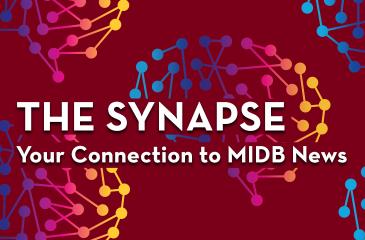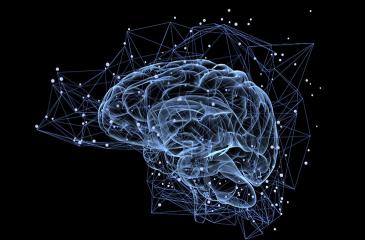The Synapse: April 2021
Bringing Together Pediatrics and Psychiatry

The most exciting part about MIDB is that it brings together people with a wide range of expertise to address major issues in children’s brain health. As leaders of our respective departments—Pediatrics and Psychiatry—we are thrilled to be working together in new ways to deliver outstanding care to children.
The neurodevelopmental issues we see in children and adolescents today—ranging from autism and ADD to increased rates of depression and self-injury—need to be dealt with using the same rigor used by previous generations to tackle polio and smallpox. This can only be achieved if we stop working in silos. We need to quickly pull together and share our knowledge to find the best solutions to these health challenges. MIDB is the place to accomplish this.
By coming together under one roof, all of us at MIDB—pediatricians, psychiatrists, psychologists, and other health professionals—will now be able to work together to better respond to shifting needs for families as children grow, or as a condition may evolve. Through our collective transdisciplinary lens, we can develop pathways to bring kids to the right experts at the right time, regardless of their department affiliation. Having research housed in the same building as clinical care will allow us to foster more active involvement of our patients and families in important research questions; will expand opportunities for community education; and will improve access to new therapies.
Together, we will make a large and positive impact for children and adolescents that will last a lifetime.
Joseph Neglia, MD, MPH
Head, Department of Pediatrics
Sophia Vinogradov, MD
Head, Department of Psychiatry and Behavioral Sciences
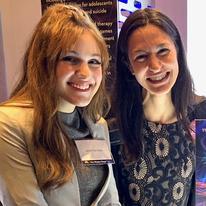
Another World Inside
Jane Hamilton and her family have journeyed across the country as advocates for greater visibility and education around Tourette Syndrome. In 2019, Jane participated in the Transcranial Magnetic Stimulation (TMS) study led by Christine Conelea, PhD. “By participating in the study, I feel like I’m doing something for the community to help research go further,” said Jane. Her story and passion for advancing what we understand about Tourette Syndrome inspires the work being done at MIDB. Jane’s mother, Sara adds, “I’m excited about the future and the research going on with Dr. Conelea and MIDB at the University of Minnesota, that’s why we want to be a part of it and do more,” said Sara. “Right now we’re at this amazing precipice. We have the opportunity to demystify Tourette Syndrome and make a positive difference in the lives of individuals and families in our communities and around the world.”
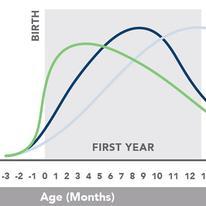
New Report Highlights Critical Importance of the First 1,000 Days of Life
The Itasca Project, a cross-sector alliance of Minneapolis-St. Paul-area employers, released its latest report, First 1000 Days: Invest When it Matters Most, which defines four major factors in optimal brain development during the first 1,000 days that offer opportunities for intervention: health and wellness, knowledge and skills, community resources and support, and social determinants of health. MIDB is partnering with the Itasca Project to advance their work in these four areas. "Here in Minnesota, we have it within our power to ensure a better lifetime of brain health. By intervening in the first 1,000 days of life, we can make an impact on each child's potential for a happy, successful future. That's good for all of us," said Medical School Dean Jakub Tolar, MD, PhD, and the Itasca Project's First 1,000 Days task force co-chair.
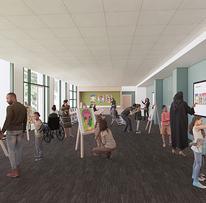
Creating a Space for Collaboration and Healing
With the establishment of the Blythe Brenden-Mann Foundation Community Center, MIDB scientists and clinicians will continue to develop and deliver effective integrative therapies for patients and their families, while keeping the U on the leading edge of research and education in this field. Located on the first floor of the new MIDB facility, the center will provide space for educational and training seminars; local, regional, and national conferences; patient-family support groups; fellowship training programs; and research and educational programs for patients, families, and community partners. The space will also be used for integrative healing offerings that will benefit patients and research participants at the institute. These therapies will enhance the healing process for patients and families, while providing critical support for their overall wellbeing.
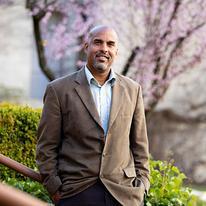
Leading with Science
An ongoing quest for MIDB Co-Director Damien Fair is finding the nature of the individual brain. “What makes you, you? We’ve been developing some new techniques to characterize or ‘fingerprint’ the brain so we can truly understand the variability we should be expecting,” he explains. “That could have a big impact on developing personalized, precision-type medical treatments.” Fair’s collaborative ethic is central to his work; he feels at home at the U on that score. “Every institution says it fosters collaboration,” Fair says. “But here, there’s truly a much higher sense of humility across different fields. It removes the barriers of the ‘I can do it all’ mentality.”

Jason David Schleien Scholarship
The Jason David Schleien Scholarship will provide a $3,000 stipend for a minimum of one student annually to participate in a semester-long internship at Wilderness Inquiry or a similar organization. Students must be enrolled full-time at the University of Minnesota’s College of Education and Human Development and participate in an approved internship with an emphasis on work that assists with the development and implementation of opportunities for individuals with disabilities, disadvantaged youth, and other underrepresented populations. The application deadline is May 1. Read the full announcement here.

Connecting with Community
As director of community engagement and education for the MIDB, Anita Randolph, PhD, aims to break down barriers between underrepresented populations and the important work happening at the U to address child and adolescent brain health. For Randolph and her team, that means creating programs designed for school and after-school programs, faith communities, foster care and adoptive families, and other settings. Randolph,
whose own research focuses on addiction and brain function, will start by establishing an advisory board to engage families and local organizations to help co-create solutions for improving child and adolescent brain health that are driven by the communities that need them most.Learn more.
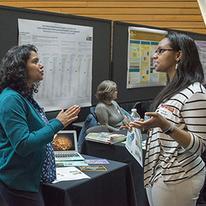
Research Day Features ICI Autism Work
The Institute on Community Integration’s work in autism prevalence and the critical age at diagnosis were highlighted at this month’s virtual College of Education and Human Development Research Day. Other featured research included children's mental health and welfare, education research and educational equity, and more. View the posters and videos from Research Day.

Impact Leaders Conversation with MIDB Co-Director Video Available
The March 17 Impact Leaders event featured an illuminating virtual conversation between UMN President Joan Gabel and 2020 MacArthur Foundation ‘genius grant’ recipients Paul Dauenhauer and Damien Fair. They reflected on their visionary research pursuits, the impact of the MacArthur Fellowship, and how the U encourages creative, trailblazing thinkers. Watch a replay of the conversation.

